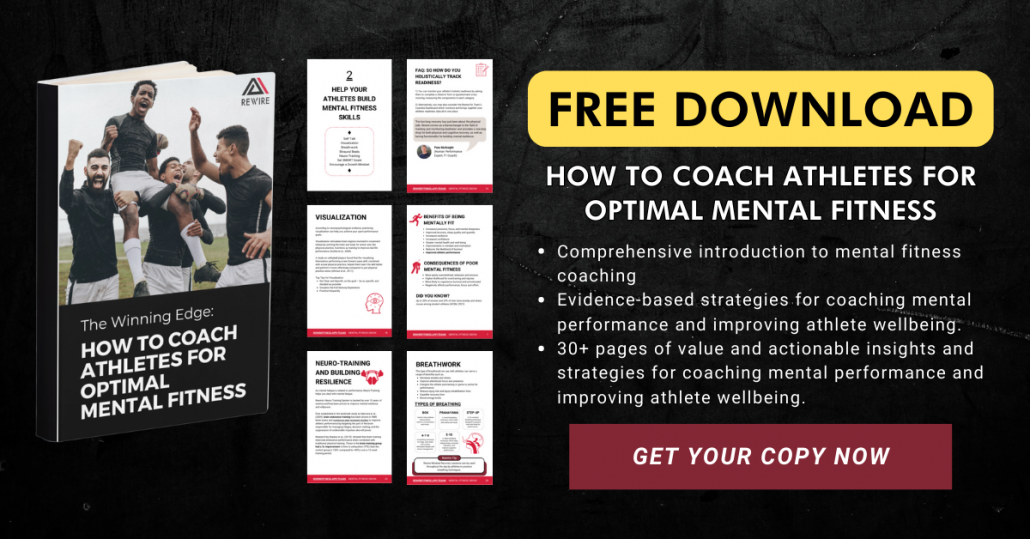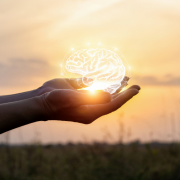What Is The Purpose of Being Mentally Fit
The purpose of mental fitness is to achieve a state of well-being, feeling calmer and more prepared to tackle a mix of life’s responsibilities and challenges.
Being mentally fit does not mean achieving a high IQ test score or being able to read a book a day. Mental fitness is a lot more holistic — it’s less about one thing and instead a mix of components and exercises that create a healthy mind.
This blog post will explain more about the purpose of mental fitness — we’ll discuss what it means to be mentally fit, the benefits, a few exercises to get started, and more.
What does it mean to be mentally fit?
Physical fitness relates to how the body looks and functions. If you exercise regularly, you improve your health and reduce your risk of disease. If you lift weights, you’ll build bigger and stronger muscles. If you run or cycle long distances, you’ll better develop your cardiovascular system.
But what about mental fitness? While exercise improves physical fitness, it also improves mental fitness. When we exercise, our brain produces and releases endorphins — also known as “feel-good hormones.” It’s why you feel happy after exercise, and it’s likely one of the reasons you keep going back — whether you realise it or not.
The purpose of being mentally fit is similar to that of physical fitness — to improve the function of your brain and how you think, feel, and react to the world around you. And while that may seem somewhat far-fetched, it’s actually rather straightforward.
What are the benefits of mental fitness?
As you likely already know, there are many benefits to focusing on mental fitness.
For example, benefits include:
- Increased presence and focus
- Improved sleep quality and quantity
- Increased resilience
- The ability to be more present
- Build confidence
- Improved cognitive function
- Build new skills
Unsurprisingly, the benefits are centred around how we think, feel, and interact with various situations.
For more benefits, you can check out our mental fitness training guide for beginners.
Mental fitness training — a few exercises to get started
If you want to get bigger muscles, you go to the gym and lift weights. But if you want to train your mind, you need to adopt a different approach.
As previously mentioned, your mental fitness is made up of several components. For example, this could include how much sleep you get, how stressed you are, whether or not you exercise regularly, your immediate environment, and so forth.
There are, of course, plenty of exercises you can do to get started:
- Regular exercise
- Practice mindfulness
- Do mind games
- Read
- Increase awareness and reduce stress with journaling
Regular exercise
Let’s start with a more obvious one: regular exercise.
The CDC states that adults need 150-minutes of exercise each week. Ideally, this should also include two days of muscle-strengthening activity. We recommend splitting the 150-minutes throughout the week — 30 minutes a day, five days a week, or something similar to best suit your schedule.
Exercise releases endorphins — these make you feel good, can elevate your mood, and improve your outlook on a certain situation or even life, in general.
Regular exercise should be a part of your mental fitness routine — it’s easy to do, it’s super rewarding, and you’ll feel great physically and mentally for doing it.
Practice mindfulness
Mindfulness and meditation often go hand in hand, but you can do one without the other — meditation is not the only form of mindfulness.
Despite this, many people find that meditation helps them achieve a more calm state of mind and improves focus and concentration.
But you can exercise mindfulness in different ways — it could be a short walk, perhaps creating a list of things you’re grateful for, gardening, cooking, or performing another hobby that you find rewarding.
We’re all different — you may enjoy yoga or meditation, or you might find that noting down your thoughts and tracking your goals in a notebook works best for you. You can also try our Rewire mindset recovery sessions, or, if you prefer, our open recovery post-workout deep mind and body session. And if guided sessions are more your thing, click here to give one a go!
Do mind games
There are loads of mind games that help reduce stress and improve cognitive performance and function. For example, it could be something as simple as a crossword puzzle, sudoku, or a game of chess.
Alongside traditional games, there are also reaction tests and other brain-stimulating tests and activities that increase cognitive function and focus. We recommend trying a mix of Rewire neuro-training sessions, designed to temporarily increase mental fatigue, and build long-term mental fitness. If you’re reading on mobile, click here to try a 3 minute neuro-training session.
Read
Regular reading keeps the mind healthy — it stimulates the mind, reduces stress, improves knowledge, and facilitates better focus and concentration.
Also, reading may keep the brain active, potentially slowing the onset of dementia in Alzheimer’s disease by up to five years, as found in a 2021 study.
Increase awareness and reduce stress with journaling
Journaling can be as simple as writing down your thoughts for a few minutes each day. But writing down how you feel can increase awareness, contributing to better mental fitness and reduced stress.
It’s a basic practice, but many people find it useful to note their thoughts on paper, almost clearing their heads and sharing the responsibility.
Mental fitness is a holistic practice
Mental fitness is a lot more holistic than you might think. Improving your mental fitness is not as simple as going for a run, playing a game of chess, reading a book, or performing reaction tests.
Instead, it’s a mix of several activities — there is no finish line, and you must constantly perform these activities to ensure optimal mental fitness.
To get started with your mental fitness journey, we recommend using the Rewire daily readiness assessment. The short 90-second assessment looks at your unique needs day-to-day, recommending specific neuro-training and mindset-recovery protocols to set yourself up for success.


References:
Ciomag, V. and Zamfir, M.V., 2016. The Benefit of Physical Exercises of our Own Body and Health. Univers Strategic, (2), p.26.
Horowitz, S., 2010. Health benefits of meditation: What the newest research shows. Alternative and Complementary Therapies, 16(4), pp.223-228.
Wilson, R.S., Wang, T., Yu, L., Grodstein, F., Bennett, D.A. and Boyle, P.A., 2021. Cognitive activity and onset age of incident Alzheimer disease dementia. Neurology, 97(9), pp.e922-e929.
Winter-Hébert, L., 2019. 10 Benefits of Reading: Why You Should Read Every Day. lifehack. org, Retrieved, pp.22-4.











